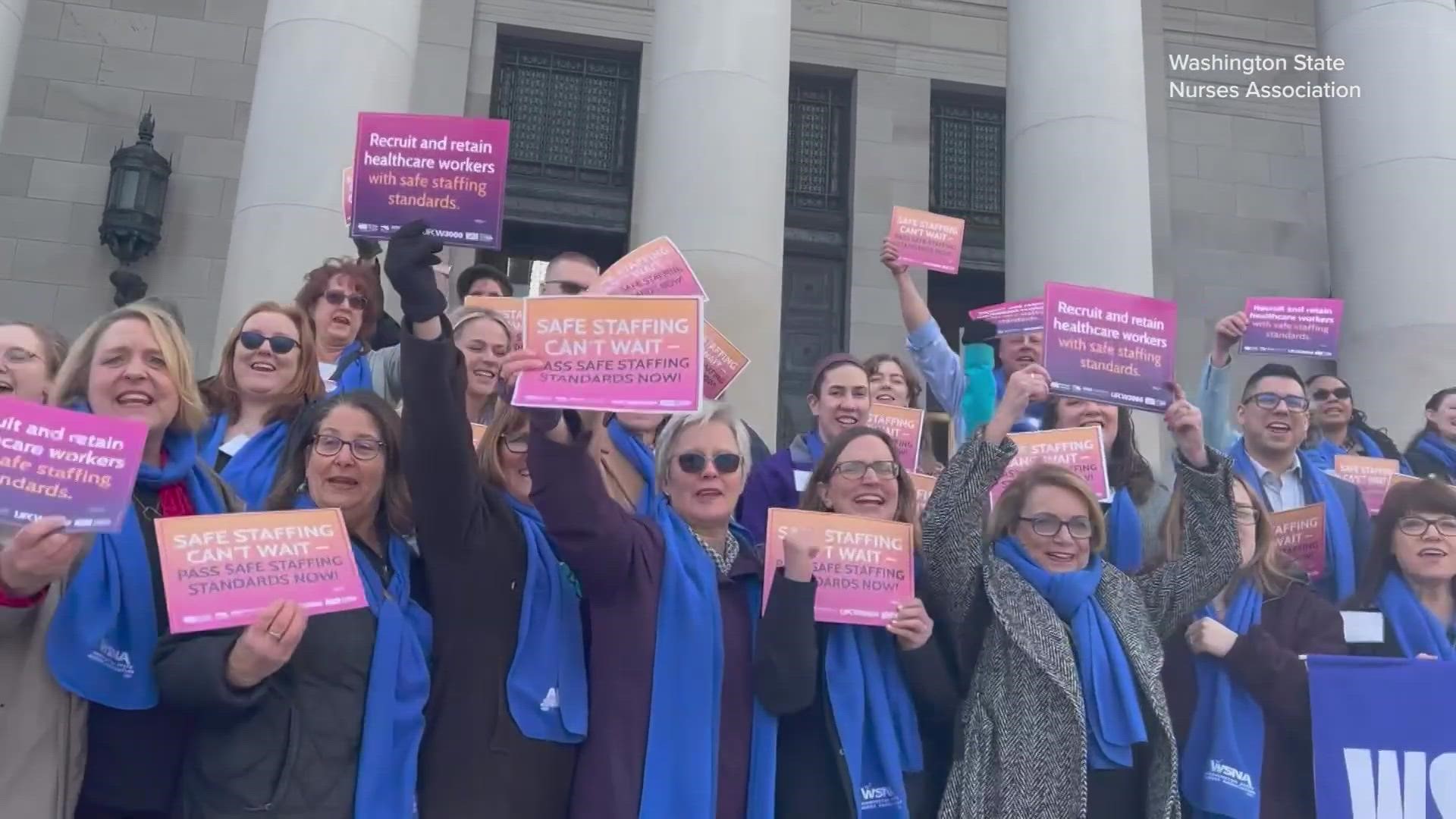OLYMPIA, Wash. — On Thursday, dozens of nurses with the Washington State Nurses Association (WSNA) lobbied lawmakers in Olympia to pass Senate Bill 5236.
The bill has three major parts: capping the number of patients a nurse can care for; reinforce a law regarding meals and breaks; and give nurses more say during committee meetings, according to Katharine Weiss, WSNA's director of government.
Adequate staffing for patient load
“Nurses are taking on double, triple what they are recommended to take on because there’s no other staff to help them out," Weiss said. "Sometimes it just means you might have to wait six hours or so before you can get into the ER, but sometimes it can mean the difference between life and death.”
Meals and breaks
“Back in 2019, the Legislature passed a meal and rest breaks bill, but it hasn’t really been enforced well. So this bill would improve enforcement, increasing fines," she said.
Giving nurses more say
“Nurses, they take time to go to these meetings, express their concerns, talk about safety concerns," Weiss said. "Then, at the end of the day, a CEO will just veto a staffing plan or ignore recommendations.”
The Washington State Hospital Association (WSHA) is strongly opposing Senate Bill 5236. The association posted the following statement on its website:
"WSHA strongly opposes SB 5236, which creates nurse-to-patient ratios. We are deeply concerned about the negative impacts to patient access that will result from this bill. This bill is very similar to E2SHB 1868 from the 2022 legislative session, which passed the House. One crucial difference between last session and 2023 is instead of enacting ratios in statute, the bill directs the Department of Labor & Industries to set ratios through rulemaking. The ratios would be developed by Jan. 1, 2027, and hospitals would be required to follow them by July 1, 2027. It also changes the mandatory prescheduled on-call cap from 24 hours per week to 60 hours per month."
Erin Allison, a registered nurse for eight years, attended Thursday's lobbying session. She said the last three years have been a rollercoaster of emotions, mainly due to the COVID-19 pandemic.
“I felt very appreciated. We got lots of meals delivered to the hospital. Lots of thanks from the community, staying home. It was definitely great at the beginning as far as support," Allison said. "Now, it’s a little different. Now, it’s not real. It’s not serious enough. Our volumes are back up so we’re overcrowded. It’s very difficult to have people keep their masks on in the hospital.”
Allison said she's pushing for this bill with the best interests of her patients in mind.
“I just want them to know the reason we’re doing all this is so that we can better take care of them as a patient in their community. Right now, if they would go to the hospital, they’d see overworked and burned out nurses," she said. “We want to provide the best care that we can, but we have the odds stacked against us right now.”
Legislators have several weeks to decide whether or not to pass Senate Bill 5236 into law.

